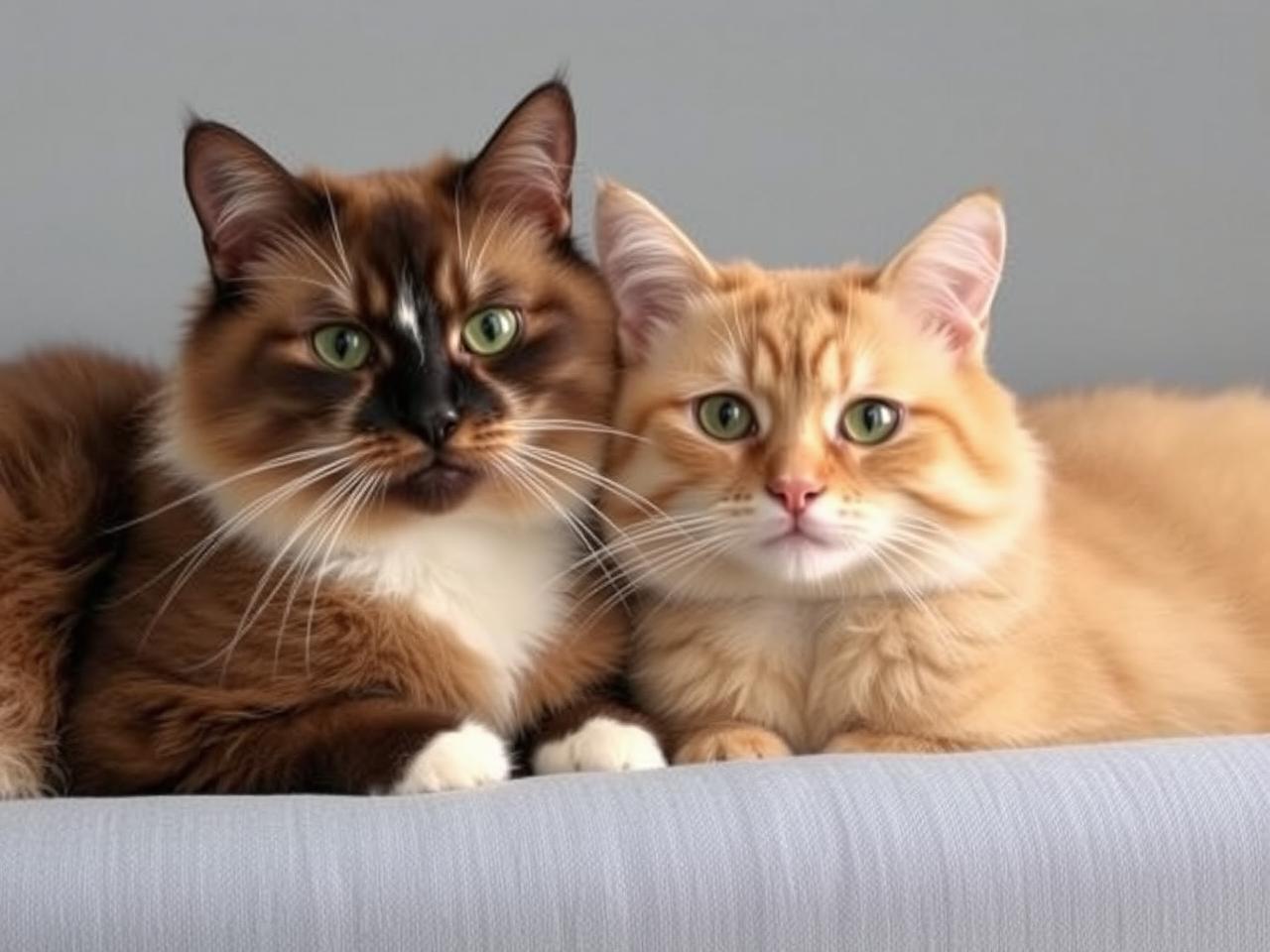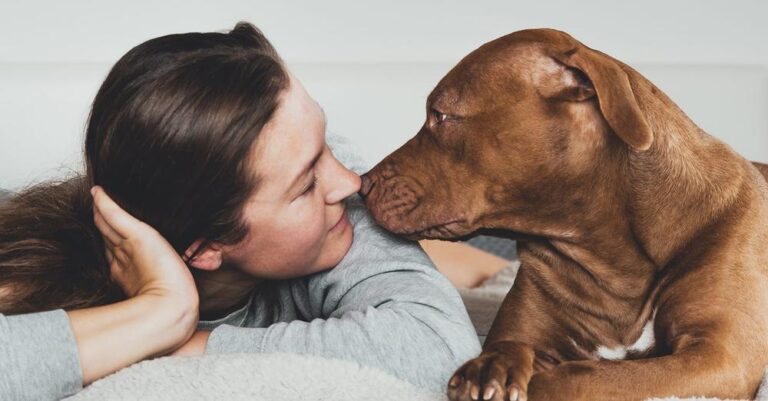Do Cats Really Choose Their Humans? Exploring Feline Loyalty
Cats have a long and complex history with humans, dating back thousands of years. The domestication of cats is believed to have begun around 7500 BC in the Near East, where wild cats were drawn to human settlements due to the abundance of rodents attracted to stored grain. Over time, humans and cats developed a mutually beneficial relationship, with cats providing pest control and companionship, while humans offered food and shelter.
As human populations spread across the globe, cats accompanied them. They were particularly valued on ships for controlling rodent populations and protecting food stores. This widespread distribution led to the development of various cat breeds as they adapted to different environments.
Today, cats are one of the most popular pets globally, with an estimated 94 million pet cats in the United States alone. The evolution of the human-cat relationship has been a fascinating journey. From their initial role as pest controllers to their current status as beloved companions, cats have maintained a significant presence in human society.
This long-standing coexistence has resulted in a deep and enduring bond between the two species, shaped by centuries of mutual benefit and adaptation. The relationship between cats and humans continues to thrive in modern society, with cats occupying a special place in many households worldwide. This unique interspecies connection, forged over millennia, demonstrates the adaptability and social nature of both cats and humans.
Key Takeaways
- Cats and humans have a long history of evolving together, leading to complex and unique relationships.
- Understanding feline behavior and body language is crucial for building a strong bond with your cat.
- Signs of feline loyalty and attachment include seeking physical contact, following their human around, and vocalizing.
- Factors influencing a cat’s choice of human include their personality, past experiences, and the quality of care they receive.
- Socialization and early experiences play a significant role in shaping a cat’s behavior and their relationship with humans.
- Building trust and strengthening the human-feline bond requires patience, respect for their boundaries, and positive reinforcement.
- A strong human-feline relationship can lead to reduced stress, increased happiness, and a sense of companionship for both parties.
Understanding Feline Behavior and Body Language
Deciphering Vocalizations and Body Language
For example, a cat that is purring and rubbing against you is likely feeling content and seeking affection, while a cat that is hissing or swatting is likely feeling threatened or agitated. By learning to interpret these signals, you can better respond to your cat’s needs and strengthen your bond with them.
The Importance of Scent Marking
In addition to vocalizations and body language, cats also use scent marking to communicate with other cats and with their human companions. Cats have scent glands on their cheeks, paws, and tail, and they use these glands to mark their territory and communicate with other cats. When a cat rubs against you or an object in your home, they are leaving their scent as a way of claiming it as their own.
Building a Stronger Bond with Your Cat
Understanding these behaviors can help you better understand your cat’s needs and preferences, and can help you build a stronger bond with them. By learning to interpret your cat’s vocalizations, body language, and scent marking, you can respond appropriately to their behavior, strengthen your bond with them, and create a harmonious living environment for both you and your feline companion.
Signs of Feline Loyalty and Attachment

Cats are often seen as independent animals, but they are also capable of forming strong bonds with their human companions. There are several signs that indicate a cat is loyal and attached to their human, such as following them around the house, seeking physical affection, and showing signs of distress when separated from their human for extended periods of time. Cats may also show their loyalty by bringing gifts such as dead prey or toys to their human as a way of providing for them or showing affection.
These behaviors are all signs that your cat values your presence and has formed a strong attachment to you. Another sign of feline loyalty and attachment is when a cat seeks physical contact with their human, such as sitting on their lap or sleeping next to them. Cats are selective about who they choose to be close to, so if your cat seeks out physical affection from you, it is a clear sign that they feel safe and secure in your presence.
Additionally, cats may show signs of distress when separated from their human for extended periods of time, such as excessive meowing or destructive behavior. These behaviors are all indications that your cat has formed a strong bond with you and values your companionship. Cats may be known for their independent nature, but they are also capable of forming deep bonds with their human companions.
Signs of feline loyalty and attachment include following their human around the house, seeking physical affection, bringing gifts, and showing signs of distress when separated from their human. These behaviors are all indications that your cat values your presence and has formed a strong attachment to you.
Factors Influencing a Cat’s Choice of Human
There are several factors that can influence a cat’s choice of human companion, including socialization, early experiences, and individual personality traits. Cats that are well-socialized from a young age are more likely to form strong bonds with humans, as they are accustomed to human interaction and have positive experiences with people. Early experiences also play a significant role in shaping a cat’s preferences for human companions, as cats that have positive experiences with humans during their formative years are more likely to seek out human companionship later in life.
In addition to socialization and early experiences, individual personality traits also play a role in a cat’s choice of human companion. Cats have unique personalities and preferences, and they may be drawn to certain individuals based on factors such as temperament, energy level, and lifestyle. For example, a high-energy cat may be drawn to an active individual who can provide plenty of playtime and stimulation, while a more laid-back cat may prefer a quieter environment with less activity.
By understanding these factors, you can better understand why your cat may have chosen you as their preferred human companion. Several factors can influence a cat’s choice of human companion, including socialization, early experiences, and individual personality traits. Cats that are well-socialized from a young age are more likely to form strong bonds with humans, while early experiences play a significant role in shaping a cat’s preferences for human companionship.
Additionally, individual personality traits also play a role in a cat’s choice of human companion, as cats have unique preferences based on factors such as temperament, energy level, and lifestyle.
The Role of Socialization and Early Experiences
Socialization and early experiences play a crucial role in shaping a cat’s preferences for human companionship. Cats that are well-socialized from a young age are more likely to form strong bonds with humans, as they are accustomed to human interaction and have positive experiences with people. Kittens that are exposed to a variety of people, environments, and stimuli during their critical socialization period (between 2-7 weeks of age) are more likely to grow up to be confident and sociable cats that enjoy human companionship.
Early experiences also play a significant role in shaping a cat’s preferences for human companionship. Cats that have positive experiences with humans during their formative years are more likely to seek out human companionship later in life. Conversely, cats that have negative experiences or lack exposure to humans during this critical period may be more wary or fearful of people.
By understanding the importance of socialization and early experiences, you can better understand your cat’s behavior and preferences, and provide them with the support they need to form strong bonds with humans. Socialization and early experiences play a crucial role in shaping a cat’s preferences for human companionship. Kittens that are well-socialized from a young age are more likely to grow up to be confident and sociable cats that enjoy human companionship.
Additionally, early experiences also play a significant role in shaping a cat’s preferences for human companionship, as cats that have positive experiences with humans during their formative years are more likely to seek out human companionship later in life.
Building Trust and Strengthening the Human-Feline Bond

Meeting Basic Needs
By providing your cat with food, water, shelter, and veterinary care on a regular basis, you can build trust by meeting their basic needs.
Positive Interactions
Positive interactions such as playtime, grooming, and affectionate touch can also help build trust by creating positive associations with human interaction.
Respecting Boundaries
Respecting your cat’s boundaries is also crucial for building trust. Cats are independent animals that value their personal space, so it’s important to respect their need for alone time and not force interactions when they are not receptive. By allowing your cat to approach you on their own terms and respecting their signals for when they want attention or space, you can build trust by showing them that you respect their autonomy.
The Benefits of a Strong Human-Feline Relationship
A strong human-feline relationship has numerous benefits for both humans and cats. For humans, the companionship of a cat can provide emotional support, stress relief, and a sense of purpose. Studies have shown that spending time with cats can lower blood pressure, reduce anxiety and depression, and improve overall mental well-being.
The bond between humans and cats can also provide a sense of comfort and security, as well as reduce feelings of loneliness or isolation. For cats, a strong relationship with their human companion can provide security, mental stimulation, and physical health benefits. Cats that have strong bonds with their humans are more likely to feel safe and secure in their environment, which can reduce stress-related behaviors such as hiding or aggression.
Additionally, the companionship of a trusted human can provide mental stimulation through playtime and interaction, as well as physical health benefits through regular grooming and veterinary care. In conclusion, the benefits of a strong human-feline relationship are numerous for both humans and cats. For humans, the companionship of a cat can provide emotional support, stress relief, and a sense of purpose.
For cats, a strong relationship with their human companion can provide security, mental stimulation, and physical health benefits. By understanding the factors that influence the bond between humans and cats and taking steps to build trust and strengthen the relationship, both humans and cats can enjoy the many benefits of a strong human-feline bond.
FAQs
What is the concept of cats choosing their humans?
The concept of cats choosing their humans refers to the idea that cats have the ability to form strong bonds with specific individuals, often displaying loyalty and affection towards them.
Is there scientific evidence to support the idea that cats choose their humans?
While there is limited scientific research specifically addressing this concept, there is anecdotal evidence and observations from cat owners and experts that suggest cats do form strong attachments to certain individuals.
What factors might influence a cat’s choice of human companion?
Factors that may influence a cat’s choice of human companion include the individual’s behavior towards the cat, the level of care and attention provided, and the cat’s own personality and past experiences.
Can cats form attachments to multiple humans?
Yes, cats are capable of forming attachments to multiple humans within a household or even outside of the household, depending on their socialization and interactions with different individuals.
Are there any benefits to the idea of cats choosing their humans?
The idea of cats choosing their humans can promote a deeper understanding of the bond between humans and cats, and may encourage people to approach their relationships with cats with more empathy and respect for the cat’s individual preferences and needs.







